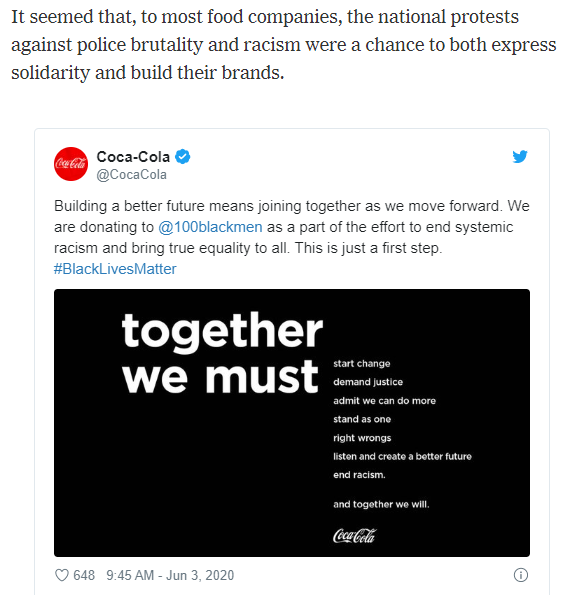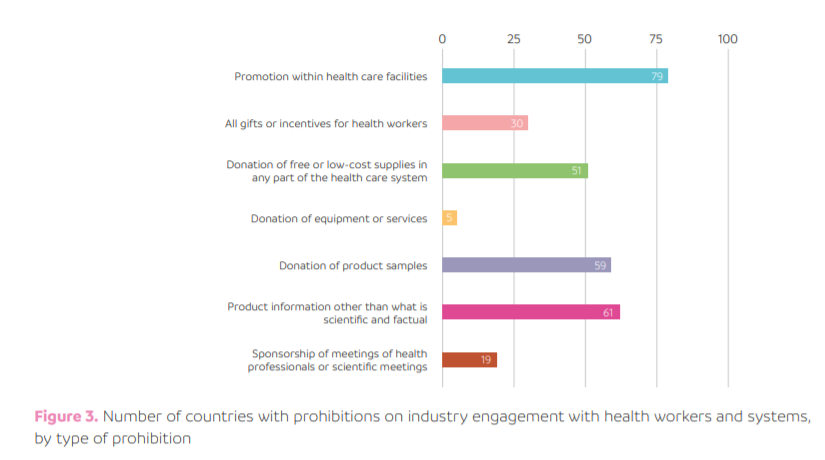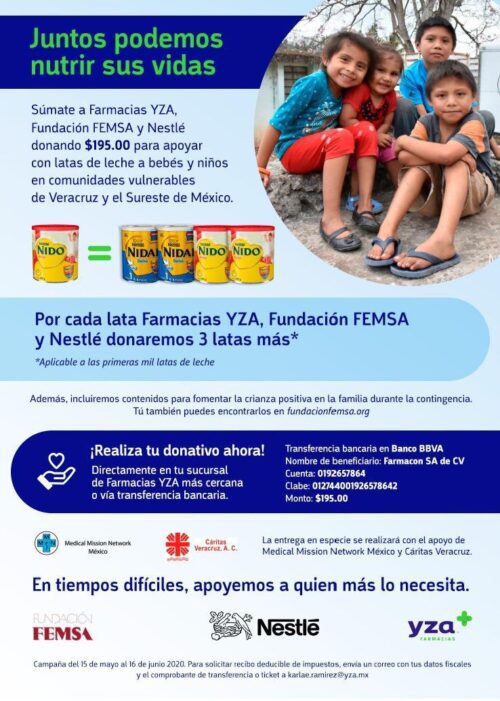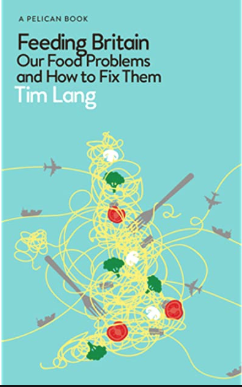Food brands making political statements
On Mondays, I like to start the week by highlighting ways that food companies are exploiting Covid-19 for marketing purposes. But here’s Tejal Rao in the New York Times on exploitation of Black Lives Matter: “Food Brands Tweet #BlackLivesMatter, but What’s Behind the Words?”
She collected a group of examples on Twitter, from which she concludes:

As she explains, “All brand statements require some suspension of disbelief from the viewer, but particularly when they’re issued by fast-food companies during the coronavirus pandemic.”
My thought: If food companies really want to promote black lives, they can start with recruiting more employees of color, paying them higher wages, offering better sick leave and health care benefits, and supporting them with child care, education, training, and opportunities for career advancement.
Corporations did this for their employees at one time. They can do it again.



 This gives me a chance to point out that Nestlé, the largest food company in the world, is not a relative, fortunately or unfortunately, depending on how you look at it.
This gives me a chance to point out that Nestlé, the largest food company in the world, is not a relative, fortunately or unfortunately, depending on how you look at it.
